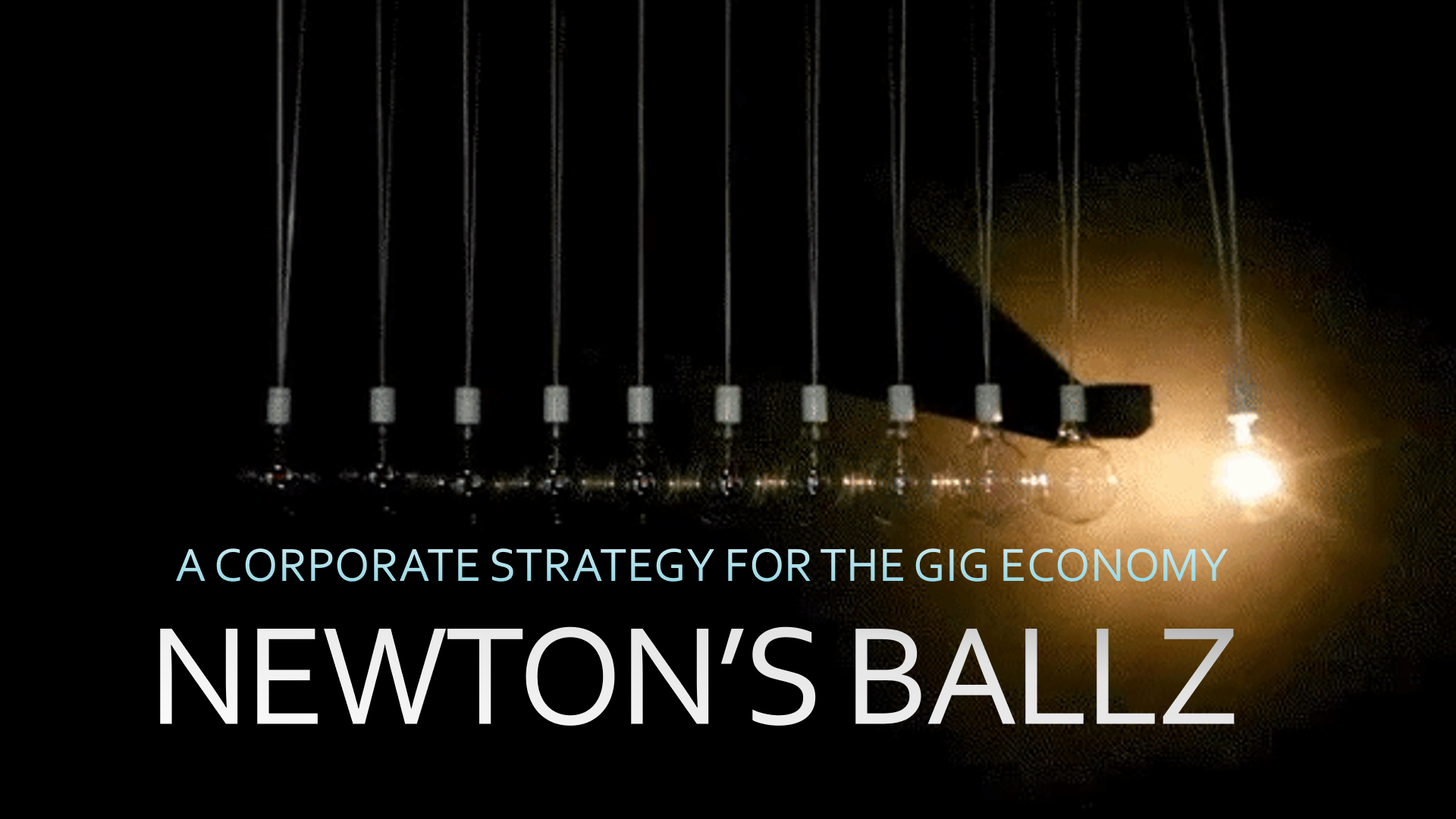The correct name for what I’m talking about is actually Newton’s Cradle which according to Wikipedia is…
“… a device that demonstrates the conservation of momentum and energy…”.
But that’s branding for you. More on that in a moment…
Dear Corporate America,
I’m the gig economy and I wanted you to better understand the threat I represent to you. But first, let’s understand what got us here in the first place.
Part of the explanation is simply a natural consequence of social and technological advancements. The internet happened, social media happened. A.I. and new automation IS happening. But for you large corporations with brands that date back to the generations of my parents, grandparents and beyond, something else also happened. Our social contract was broken.
Gone are the days where anyone holds any expectation of loyalty; whether that’s B2B, B2C or between businesses and their employees. We know any publicly traded business is primarily beholden to its shareholders and we’re wary of your old-school ads with their high-gloss finish on what’s that thing you’re advertising on? TV? You still use that?
If you want to distinguish yourself in today’s economy, committing yourself to your founding reason for being and the reestablishment of that social contract wouldn’t be a bad place to start.
Perhaps it’s a good thing I came up with the following boat analogy after I’d prepared for the presentation above. It allowed me to illustrate it with more justice than what I would have done in PowerPoint. The point is, there are numerous advantages I enjoy as a small, virtual, digital marketing agency, and you should understand them.
By the way, another advantage not mentioned in my presentation is this: I’m free to speak my mind! I get to be honest with my audience. The very existence of my content channel BIYF Marketing is a reconciliation of my professional self and myself among friends. For however many people may object to my content or style (and I suspect it’s very few), I have found many more who are quite comfortable with it.
These advantages will not be replicable for all business models or all industries, and I’m not saying brick and mortar businesses don’t still enjoy their own set of advantages. But I imagine it would be prudent for executives of large and longstanding corporations to take stock of what these advantages are, how they represent a threat, and to be mindful of how those threats may be absorbed internally or neutralized.
The solution I’ve concluded is Newton’s Cradle, also referred to as Newton’s Balls (great for my branding), and also known as the Executive Ball Clicker (great for the audience of this article). Replace the word ‘device’ with ‘business’ and the definition becomes:
“A business that demonstrates the conservation of momentum and energy”
My suggestions are fairly straightforward:
1) Don’t create your own competition – don’t do what the agencies did. If there are new efficiencies afforded by technology, of course, take advantage of them. But doing so with the sole objective of reducing your payroll is shortsighted. You may be creating a legion of freelancers ready to steal your clientele and you may soon find yourself competing for top talent as a consequence.
2) It’s great to humanize your technology, but don’t do it at the expense of dehumanizing your brand. Using chatbots for example as a fast and triaged customer support system is a great idea, but make sure there’s still someone with a pulse who can talk with your customers when they feel that’s what they need.
In short, become a business that demonstrates the conservation of momentum and energy such that everyone (your consumers, employees, vendors, etc.) become brand ambassadors for you.
Do you feel like your business is slipping into oblivion along with the industrial age?
Visit my personal page and let’s set up a call: http://iamjulian.space/


